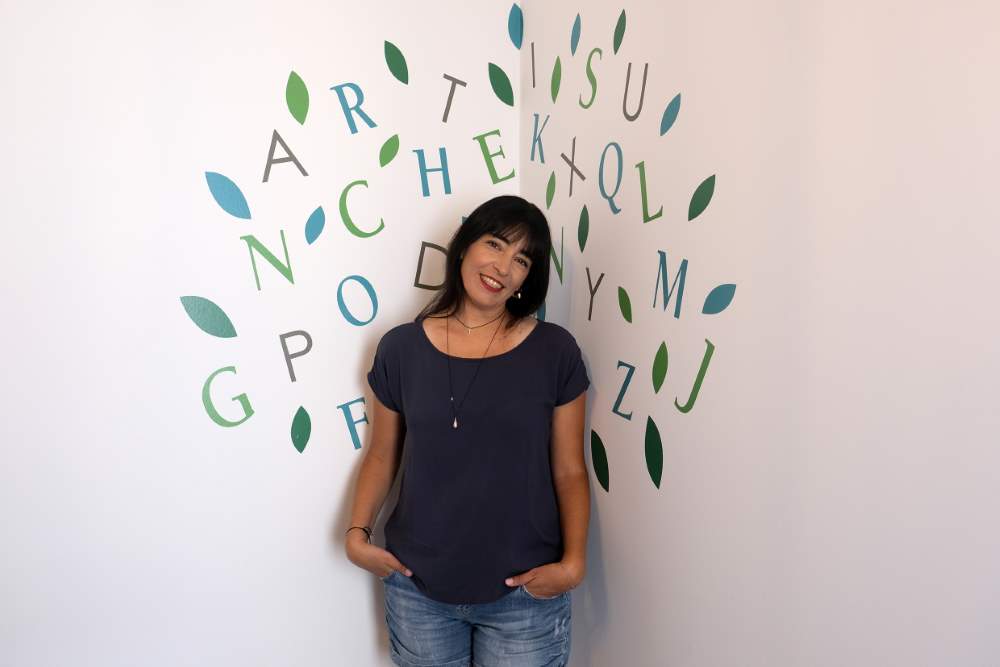In the ever-evolving field of language education, educators are constantly seeking innovative methods to enhance their teaching practices and meet the diverse needs of their students. One of the most powerful tools for professional development in this domain is the study of psychology. Understanding key psychological theories and principles can significantly impact how language teachers approach their craft, from designing effective lesson plans to managing classroom dynamics with greater insight and empathy.
In this exclusive interview, Margarita Bofiliou, named 2024 Educator of the Year, explores the vital intersection of psychology and language teaching. Margarita dives into how cognitive psychology, psycholinguistics, developmental psychology, and positive psychology can transform educational practices in the language classroom. By discussing real-life applications and sharing her own experiences, Margarita highlights the multifaceted benefits that psychological knowledge brings to language education. From improving comprehension and language production to addressing behavioral challenges and supporting mental health, integrating psychological insights into teaching holds the potential to create more engaging, supportive, and successful learning environments.
Margarita Bofiliou has been an English language teacher since 2006 and is equipped with a TEFL certificate and a bachelor's degree in Psychological Sciences and Techniques. Her expertise extends to teaching students with dyslexia, ADHD, and other special educational needs. Margarita is also certified to administer psychometric diagnostic tests, ensuring that her educational approaches are tailored to the unique needs of each student.
In 2020, Margarita founded “Margarita • Creative English Learning,” the only English language school in Paros that caters to both students with and without dyslexia and/or ADHD. The school has received multiple awards for its outstanding educational programs. Margarita also shares her expertise as a speaker at various seminars and webinars focused on dyslexia, ADHD, and related topics, contributing significantly to the field of special education.
How can understanding the information processing theory enhance your approach to teaching a second language?
The information processing theory explains how individuals process, store, and retrieve information, which can be pivotal in enhancing the teaching and learning process. Applying this theory in language education allows teachers to create a more effective learning environment by focusing on strategies that enhance students’ attention and working memory. For instance, by highlighting key vocabulary, grammar structures, or breaking down complex language input into smaller, manageable chunks, teachers can help students process information more efficiently. Recognizing that each student processes information differently enables educators to differentiate instruction based on individual learning styles and needs, incorporating a mix of visual, auditory, and kinesthetic activities to engage diverse learners. The application of information processing theory is clearly beneficial in several ways, enhancing both the teaching approach and student outcomes.

Can you provide an example of how you have applied a psychological principle or theory in your language classroom to improve student outcomes?
Guidance and encouragement are essential components of effective language teaching. Learning a foreign language goes beyond the goal of earning a certificate; it involves building confidence, particularly for students with dyslexia or ADHD, who often struggle with self-assurance in their speaking and conversational skills. For instance, students might manage basic conversations independently but face challenges with more complex discussions. By identifying the specific support each student needs, I create a structured yet flexible learning environment that helps them progress from their current abilities to higher levels of proficiency through guided support. This approach also boosts their confidence in using the language. For example, when discussing a topic, I provide key phrases and vocabulary related to the subject or organize small group activities where students can practice speaking with a more advanced peer. Over time, as students gain confidence and competence, I gradually reduce the level of support, fostering greater independence in their language use.
How does knowledge of psycholinguistics inform your teaching methods, particularly in helping students produce and comprehend new languages?
Psycholinguistics offers valuable insights that can greatly enhance language teaching methods, particularly in designing instructional materials and activities that facilitate the gradual acquisition of new language structures. This involves not only teaching the language but also guiding students in using it appropriately across different contexts. Since anxiety can be a significant barrier to language learning, I emphasize constructive feedback that addresses specific errors while guiding students toward correct usage without discouraging them. Setting achievable goals and creating a low-stress, supportive classroom environment are crucial strategies that stem from psycholinguistic principles, helping students navigate the complexities of language learning with greater ease and confidence.
What cognitive processes involved in language acquisition do you find most crucial for developing effective lesson plans, and why?
Several cognitive processes are critical when developing effective lesson plans for language acquisition, including attention, working memory, long-term memory, and metacognition. Attention is fundamental as it determines which linguistic input—such as new vocabulary, grammar rules, or pronunciation—gets processed and stored. Working memory plays a key role in temporarily holding and processing information, which is vital during activities like conversation or reading. Long-term memory is responsible for storing language knowledge over time, enabling students to retrieve it when needed. Metacognition, which involves planning, monitoring, and evaluating one’s understanding and performance, is essential for helping students manage their learning process effectively. By incorporating these cognitive processes into lesson plans, I can create more effective and engaging language learning experiences that significantly enhance students’ ability to use the new language.
In what ways has studying psychology improved your classroom management skills, especially in addressing behavioral issues?
As a teacher with a background in psychology, I have developed a deeper understanding of my students' emotions and behaviors, which has significantly improved my classroom management skills. By integrating psychological principles into my approach, I create a more effective and supportive learning environment. Understanding the different stages of development, students’ learning styles, how they process information, and how certain behaviors may stem from developmental changes allows me to tailor my classroom management strategies accordingly. Establishing clear, consistent rules and routines is crucial in creating a predictable environment, while setting clear consequences for negative behavior helps students understand boundaries and expectations. Building healthy relationships and fostering a positive classroom climate are also vital, as they help students feel safe, valued, and respected, which in turn reduces anxiety and behavioral issues.
How do you incorporate elements of positive psychology into your language teaching to create a more productive learning environment?
Many students, particularly those with dyslexia or ADHD, often struggle with motivation and self-esteem. My approach to language teaching involves emphasizing their strengths and ensuring that every student feels respected and included, regardless of their background. By helping students identify and leverage their strengths in the language learning process, I foster a more positive and productive learning environment. For example, a student who excels in art might create posters for vocabulary practice, which not only enhances their language skills but also boosts their confidence. Positive psychology focuses on enhancing positive emotions, which can significantly increase students' motivation and engagement in learning. By acknowledging and praising students for their effort and achievements, rather than just their results, I not only support their language acquisition but also contribute to their overall well-being, creating an inclusive and encouraging classroom atmosphere.
Can you describe a time when your understanding of psychology helped you identify and address a student's stress or mental health challenge in the classroom?
A few years ago, I encountered a situation with a young student from Albania, "Maria," who was about 8 or 9 years old. Her mother expressed concern about Maria’s well-being, noting significant behavioral changes and frequent complaints of stomach aches after school. Maria also showed reluctance to attend our English classes, which worried her mother. I assured her mother that I would investigate and offer support as needed.
I decided to approach Maria privately, sensing that something was bothering her. Instead of making her complete a classroom exercise, I suggested she write down her concerns and place them in my pencil case, with the promise that I would only read them with her permission. Maria confided in me, revealing that she was being bullied at school due to her non-Greek background, her perceived mistakes in class, and her sense of being different. While I couldn’t change the environment at her school, I worked to create a supportive atmosphere in our classroom. We discussed her situation, and I provided strategies to help her cope. In the days that followed, Maria became more engaged in class, and her anxiety decreased significantly. I will always remember when she asked me, “Miss, why do you love us so much?”
How has your knowledge of developmental psychology influenced your approach to teaching students at different age levels?
Developmental psychology has greatly influenced my approach to designing age-appropriate instruction that aligns with the cognitive, social, and emotional needs of my students. By tailoring my teaching methods to suit the developmental stages of learners, I can create more effective and engaging language learning experiences. For instance, very young learners benefit from play and imitation, so I incorporate plenty of interactive activities that allow them to learn through exploration. Older students, who can think more logically about concrete objects but struggle with abstract concepts, benefit from group work, role-plays, and interactive games that promote social learning and practical language use. As students enter adolescence and begin to think more abstractly and critically, I incorporate activities that involve critical thinking, problem-solving, and collaborative projects, all of which are relevant to their interests and experiences, thereby increasing their engagement in the learning process.
What educational psychology techniques do you use to help students with learning difficulties succeed in acquiring a new language?
Teaching students with learning difficulties requires a compassionate approach that accommodates diverse needs through inclusive practices. Effective strategies I employ include developing individualized plans that address each student’s strengths, weaknesses, and interests. I also group students based on their learning needs and pair them with supportive peers. Additionally, I use visual aids, mnemonics, flashcards, auditory support, and kinesthetic activities to engage multiple senses. Tasks are broken down into smaller, manageable steps with clear instructions, and I provide specific, motivational feedback to help students achieve their goals. Creating a safe and supportive classroom environment

